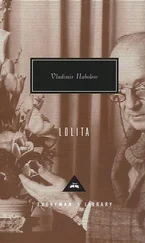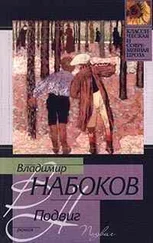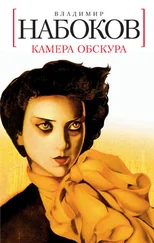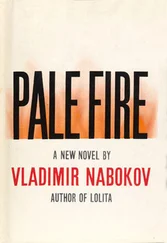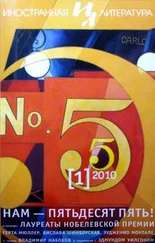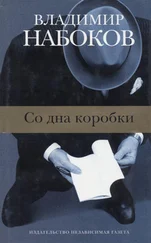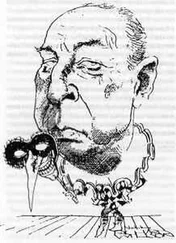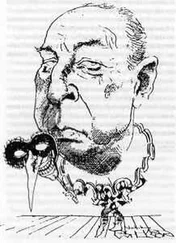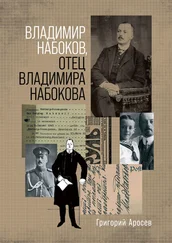Владимир Набоков - Ada, or Ador - A Family Chronicle
Здесь есть возможность читать онлайн «Владимир Набоков - Ada, or Ador - A Family Chronicle» весь текст электронной книги совершенно бесплатно (целиком полную версию без сокращений). В некоторых случаях можно слушать аудио, скачать через торрент в формате fb2 и присутствует краткое содержание. Жанр: Классическая проза, Современные любовные романы, на английском языке. Описание произведения, (предисловие) а так же отзывы посетителей доступны на портале библиотеки ЛибКат.
- Название:Ada, or Ador: A Family Chronicle
- Автор:
- Жанр:
- Год:неизвестен
- ISBN:нет данных
- Рейтинг книги:3 / 5. Голосов: 1
-
Избранное:Добавить в избранное
- Отзывы:
-
Ваша оценка:
- 60
- 1
- 2
- 3
- 4
- 5
Ada, or Ador: A Family Chronicle: краткое содержание, описание и аннотация
Предлагаем к чтению аннотацию, описание, краткое содержание или предисловие (зависит от того, что написал сам автор книги «Ada, or Ador: A Family Chronicle»). Если вы не нашли необходимую информацию о книге — напишите в комментариях, мы постараемся отыскать её.
Ada, or Ador: A Family Chronicle — читать онлайн бесплатно полную книгу (весь текст) целиком
Ниже представлен текст книги, разбитый по страницам. Система сохранения места последней прочитанной страницы, позволяет с удобством читать онлайн бесплатно книгу «Ada, or Ador: A Family Chronicle», без необходимости каждый раз заново искать на чём Вы остановились. Поставьте закладку, и сможете в любой момент перейти на страницу, на которой закончили чтение.
Интервал:
Закладка:
The two kids’ best find, however, came from another carton in a lower layer of the past. This was a small green album with neatly glued flowers that Marina had picked or otherwise obtained at Ex, a mountain resort, not far from Brig, Switzerland, where she had sojourned before her marriage, mostly in a rented chalet. The first twenty pages were adorned with a number of little plants collected at random, in August, 1869, on the grassy slopes above the chalet, or in the park of the Hotel Florey, or in the garden of the sanatorium neat: it (‘my nusshaus,’ as poor Aqua dubbed it, or ‘the Home,’ as Marina more demurely identified it in her locality notes). Those introductory pages did not present much botanical or psychological interest; and the fifty last pages or so remained blank; but the middle part, with a conspicuous decrease in number of specimens, proved to be a regular little melodrama acted out by the ghosts of dead flowers. The specimens were on one side of the folio, with Marina Dourmanoff (sic) ’s notes en regard.
Ancolie Bleue des Alpes, Ex en Valais, i.IX.69. From Englishman in hotel. ‘Alpine Columbine, color of your eyes.’
Epervière auricule. 25.X.69, Ex, ex Dr Lapiner’s walled alpine garden.
Golden [ginkgo] leaf: fallen out of a book’ The Truth about Terra’ which Aqua gave me before going back to her Home. 14.XII.69.
Artificial edelweiss brought by my new nurse with a note from Aqua saying it came from a ‘mizernoe and bizarre’ Christmas Tree at the Home. 25.XII.69.
Petal of orchid, one of 99 orchids, if you please, mailed to me yesterday, Special Delivery, c’est bien le cas de le dire, from Villa Armina, Alpes Maritimes. Have laid aside ten for Aqua to be taken to her at her Home. Ex en Valais, Switzerland. ‘Snowing in Fate’s crystal ball,’ as he used to say. (Date erased.)
Gentiane de Koch, rare, brought by lapochka [darling] Lapiner from his ‘mute gentiarium’ 5.I.1870.
[blue-ink blot shaped accidentally like a flower, or improved felt-pen deletion] (Compliquaria compliquata var. aquamarina. Ex, 15.I.70.
Fancy flower of paper, found in Aqua’s purse. Ex, 16.II.1870, made by a fellow patient, at the Home, which is no longer hers.
Gentiana verna (printanière). Ex, 28.III.1870, on the lawn of my nurse’s cottage. Last day here.
The two young discoverers of that strange and sickening treasure commented upon it as follows:
‘I deduce,’ said the boy, ‘three main facts: that not yet married Marina and her. married sister hibernated in my lieu de naissance; that Marina had her own Dr Krolik, pour ainsi dire; and that the orchids came from Demon who preferred to stay by the sea, his dark-blue great-grandmother.’
‘I can add,’ said the girl, ‘that the petal belongs to the common Butterfly Orchis; that my mother was even crazier than her sister; and that the paper flower so cavalierly dismissed is a perfectly recognizable reproduction of an early-spring sanicle that I saw in profusion on hills in coastal California last February. Dr Krolik, our local naturalist, to whom you, Van, have referred, as Jane Austen might have phrased it, for the sake of rapid narrative information (you recall Brown, don’t you, Smith?), has determined the example I brought back from Sacramento to Ardis, as the Bear-Foot, B,E,A,R, my love, not my foot or yours, or the Stabian flower girl’s — an allusion, which your father, who, according to Blanche, is also mine, would understand like this’ (American finger-snap). ‘You will be grateful,’ she continued, embracing him, ‘for my not mentioning its scientific name. Incidentally the other foot — the Pied de Lion from that poor little Christmas larch, is by the same hand — possibly belonging to a very sick Chinese boy who came all the way from Barkley College.’
‘Good for you, Pompeianella (whom you saw scattering her flowers in one of Uncle Dan’s picture books, but whom I admired last summer in a Naples museum). Now don’t you think we should resume our shorts and shirts and go down, and bury or burn this album at once, girl. Right?
‘Right,’ answered Ada. ‘Destroy and forget. But we still have an hour before tea.’
Re the ‘dark-blue’ allusion, left hanging:
A former viceroy of Estoty, Prince Ivan Temnosiniy, father of the children’s great-great-grandmother, Princess Sofia Zemski (1755–1809), and a direct descendant of the Yaroslav rulers of pre-Tartar times, had a millennium-old name that meant in Russian ‘dark blue.’ While happening to be immune to the sumptuous thrills of genealogic awareness, and indifferent to the fact that oafs attribute both the aloofness and the fervor to snobbishness, Van could not help feeling esthetically moved by the velvet background he was always able to distinguish as a comforting, omnipresent summer sky through the black foliage of the family tree. In later years he had never been able to reread Proust (as he had never been able to enjoy again the perfumed gum of Turkish paste) without a roll-wave of surfeit and a rasp of gravelly heartburn; yet his favorite purple passage remained the one concerning the name ‘Guermantes,’ with whose hue his adjacent ultramarine merged in the prism of his mind, pleasantly teasing Van’s artistic vanity.
Hue or who? Awkward. Reword! (marginal note in Ada Veen’s late hand).
2
Marina’s affair with Demon Veen started on his, her, and Daniel Veen’s birthday, January 5, 1868, when she was twenty-four and both Veens thirty.
As an actress, she had none of the breath-taking quality that makes the skill of mimicry seem, at least while the show lasts, worth even more than the price of such footlights as insomnia, fancy, arrogant art; yet on that particular night, with soft snow falling beyond the plush and the paint, la Durmanska (who paid the great Scott, her impresario, seven thousand gold dollars a week for publicity alone, plus a bonny bonus for every engagement) had been from the start of the trashy ephemeron (an American play based by some pretentious hack on a famous Russian romance) so dreamy, so lovely, so stirring that Demon (not quite a gentleman in amorous matters) made a bet with his orchestra-seat neighbor, Prince N., bribed a series of green-room attendants, and then, in a cabinet reculé (as a French writer of an earlier century might have mysteriously called that little room in which the broken trumpet and poodle hoops of a forgotten clown, besides many dusty pots of colored grease, happened to be stored) proceeded to possess her between two scenes (Chapter Three and Four of the martyred novel). In the first of these she had undressed in graceful silhouette behind a semitransparent screen, reappeared in a flimsy and fetching nightgown, and spent the rest of the wretched scene discussing a local squire, Baron d’O., with an old nurse in Eskimo boots. Upon the infinitely wise countrywoman’s suggestion, she goose-penned from the edge of her bed, on a side table with cabriole legs, a love letter and took five minutes to reread it in a languorous but loud voice for no body’s benefit in particular since the nurse sat dozing on a kind of sea chest, and the spectators were mainly concerned with the artificial moonlight’s blaze upon the lovelorn young lady’s bare arms and heaving breasts.
Even before the old Eskimo had shuffled off with the message, Demon Veen had left his pink velvet chair and proceeded to win the wager, the success of his enterprise being assured by the fact that Marina, a kissing virgin, had been in love with him since their last dance on New Year’s Eve. Moreover, the tropical moonlight she had just bathed in, the penetrative sense of her own beauty, the ardent pulses of the imagined maiden, and the gallant applause of an almost full house made her especially vulnerable to the tickle of Demon’s moustache. She had ample time, too, to change for the next scene, which started with a longish intermezzo staged by a ballet company whose services Scotty had engaged, bringing the Russians all the way in two sleeping cars from Belokonsk, Western Estoty. In a splendid orchard several merry young gardeners wearing for some reason the garb of Georgian tribesmen were popping raspberries into their mouths, while several equally implausible servant girls in sharovars (somebody had goofed — the word ‘samovars’ may have got garbled in the agent’s aerocable) were busy plucking marshmallows and peanuts from the branches of fruit trees. At an invisible sign of Dionysian origin, they all plunged into the violent dance called kurva or ‘ribbon boule’ in the hilarious program whose howlers almost caused Veen (tingling, and light-loined, and with Prince N.’s rose-red banknote in his pocket) to fall from his seat.
Читать дальшеИнтервал:
Закладка:
Похожие книги на «Ada, or Ador: A Family Chronicle»
Представляем Вашему вниманию похожие книги на «Ada, or Ador: A Family Chronicle» списком для выбора. Мы отобрали схожую по названию и смыслу литературу в надежде предоставить читателям больше вариантов отыскать новые, интересные, ещё непрочитанные произведения.
Обсуждение, отзывы о книге «Ada, or Ador: A Family Chronicle» и просто собственные мнения читателей. Оставьте ваши комментарии, напишите, что Вы думаете о произведении, его смысле или главных героях. Укажите что конкретно понравилось, а что нет, и почему Вы так считаете.

